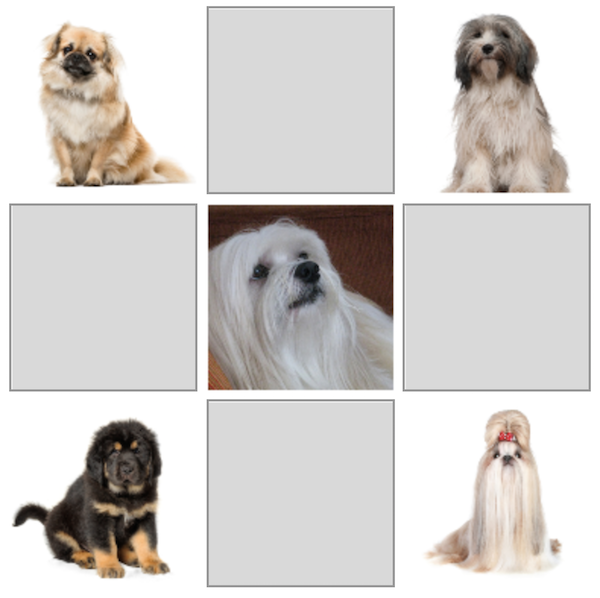
What Tibetan breeds have in common would appear to be obvious: It’s their country of origin, Tibet. But according to their breed standards as listed with the Fédération Cynologique Internationale (FCI) (and China), Tibet is not its own country, it’s part of China. Each Tibetan breed standard reads: Origin: Tibet (China).
The decision made a few years ago was of seismic proportions to the owners of Tibetan breeds who did, and still do, regard their breeds to be Tibetan in origin, not Chinese. China had no part in developing these breeds, nor in establishing the breed Standards. Most owners felt it was a slap in the face.
The decision was rooted in China’s refusal to accept Tibet’s existence as its own country, but some also point out China’s emergence as a “player” in the international dog fancy. The country’s economy has grown, and a new, more affluent class has taken to competing with dogs (instead of eating them, some might suggest) which spurred the formation of several kennel clubs, all jockeying for position.
The FCI governs international dog show events in most of the world, and because it has only ever accepted only one national organization per country, it had to choose which club to recognize (and with which to have contracts). The Chinese Kennel Union had grown powerful enough to exert pressure on the FCI to fall in line with China’s policy with regards to Tibet, and that meant turning a blind eye to what both the United States and the European Union regard as the Chinese occupation of an independent country.
There was, of course, an outcry. Many felt the action was part of China’s plan to rewrite Tibetan history. Petitions were signed and delivered several years ago, and several breed clubs wrote to express their disagreement with the decision, and to ask that it be reversed. The only concession the FCI made was to present the country of origin in the breed standards as it’s currently seen in the last sentence of the first paragraph: Origin: Tibet (China).
Since the World Dog Show will be in Shanghai in 2019, some suspect that the “Tibet” part of the country of origin will be dropped during the show altogether in deference to China. Some fanciers (if not most) also wondered why such a prestigious event in the dog world was awarded to a country with a horrendous animal welfare record.
A statement by the FCI was released that read, in part:
Whilst we understand the concern expressed by the breeders worldwide about both situations, the FCI wishes to inform that the decision to grant the organization of the WDS 2019 to China was taken by a decision of our General Assembly where 68 countries were present or represented and by a large majority of votes, in total transparency and according to the principles of democracy internationally recognised and accepted…..”
Not everyone, however, voted in the affirmative. Norway did not, and the Swedish Kennel Club’s response can be seen here.
A Facebook page, No for China World Dog Show 2019, was established, but the last post was seven months ago, and we caution you that while the images on the page drive home the point of China’s shocking animal welfare record, they are disturbing.
As complicated as all this sounds, we haven’t even touched upon the impact to show judges. FCI rules don’t allow AKC judges to officiate at non-FCI shows held in countries that already have an FCI-recognized club, and when the FCI warned AKC judges about this again back, we think, in 2015, the AKC responded by barring all judges from the FCI Asian Pacific Section at AKC shows. It also threatened to disallow FCI judges, but we have no knowledge of how the situation ended, or if it was resolved.
The horrors of the dog meat trade and festival makes all this pale in comparison, and some speculate that the Yulin Meat Festival that kills between 10,000 to 15,000 dogs over a 10 day period may be cancelled in 2019 when the World Dog Show is scheduled to occur. Dog lovers fear that once the dog show has come and gone, the meat festival will resume into the foreseeable future. In light of this, it’s a strong guess that protests against the FCI changes will become prominent again as the World Dog Show grows closer with about seven months to go. Even dog lovers in China (including the Capital Animal Welfare Association in Beijing) have said they plan to join efforts to boycott the show, but that remains to be seen in a country where dissidence is risky.
Our knowledge about where things stand as we write is limited, and we welcome input from judges or others who know more about the situation as of today.
